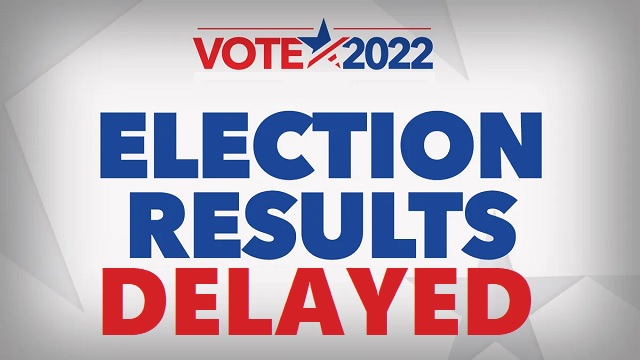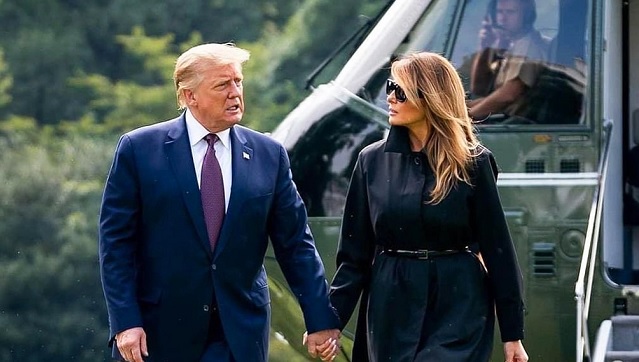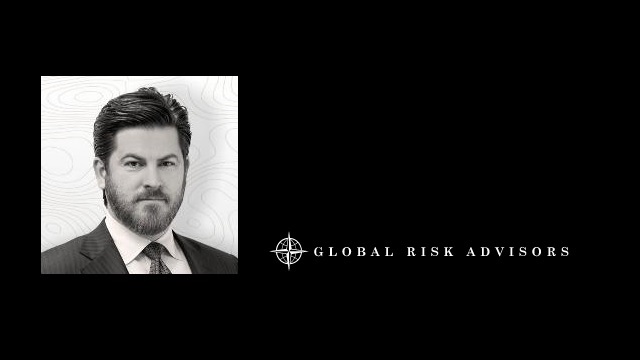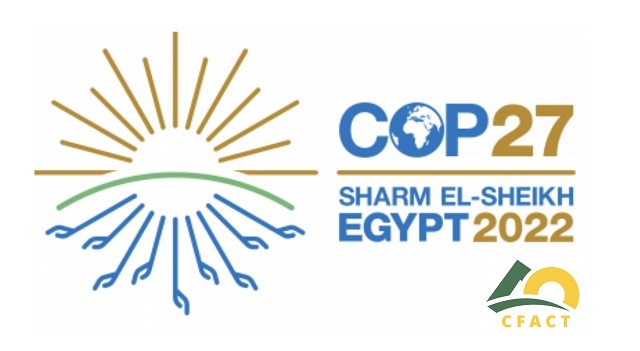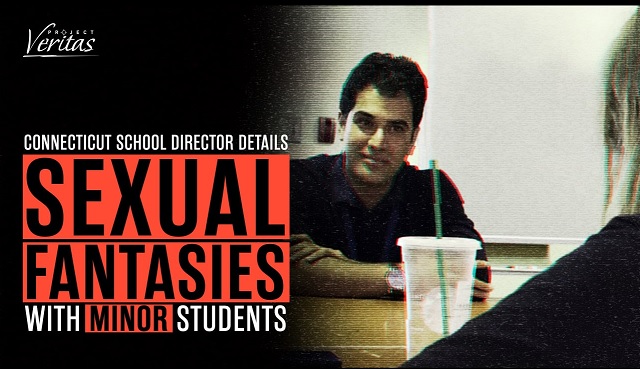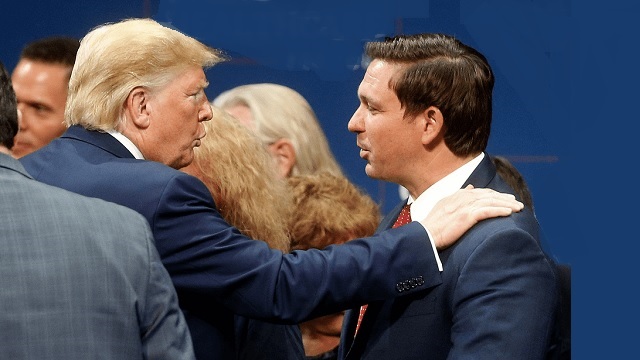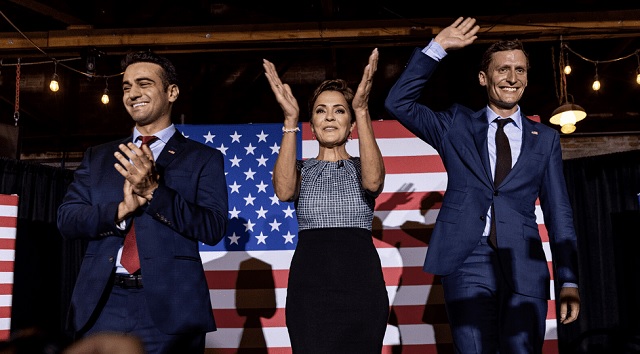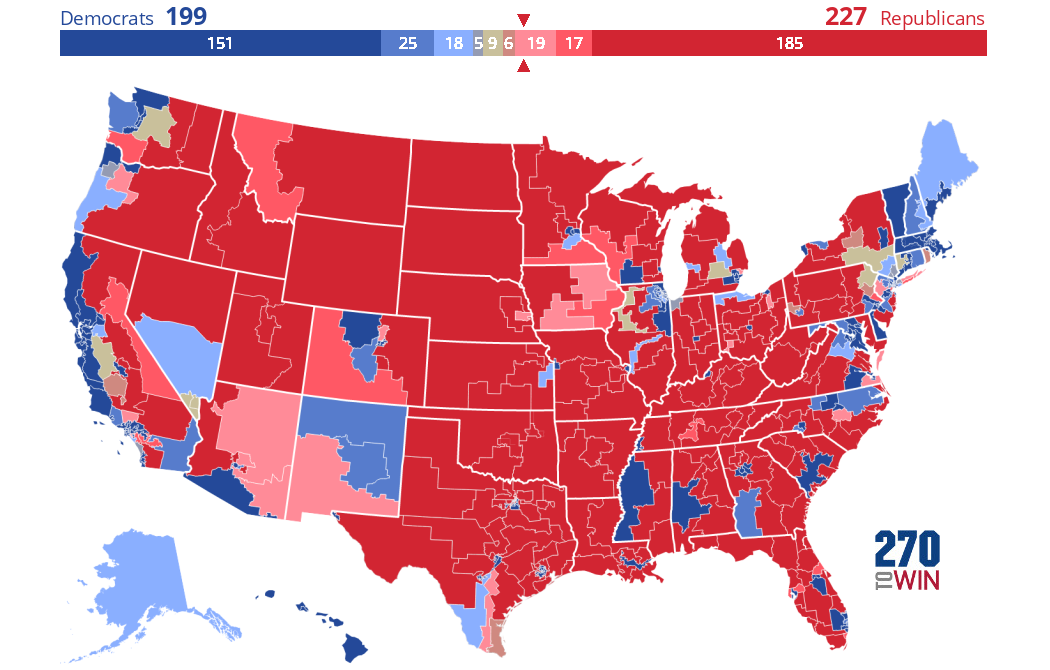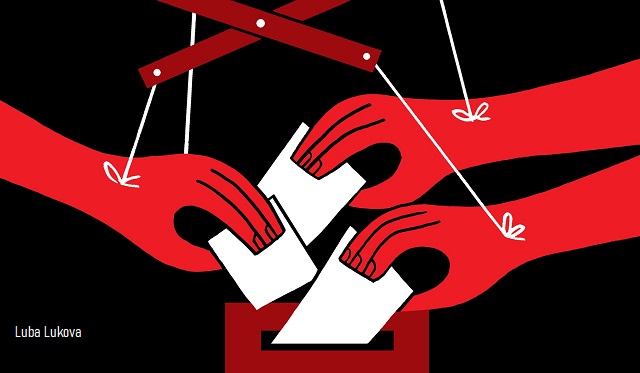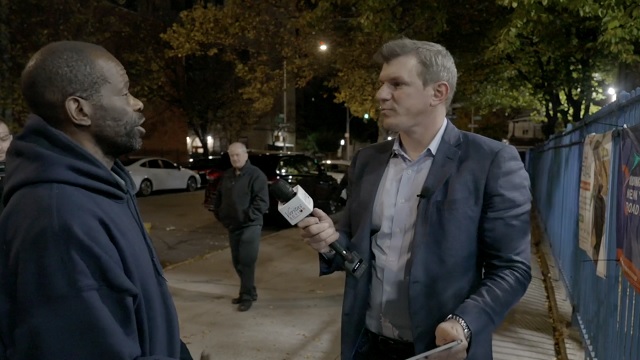They just got away with another big election steal. Seamlessly. They stole another election and nobody was able to stop them. So now they are coming after us MAGA people and President Trump with a vengeance.
By: Sundance, Conservative Treehouse, November 9, 2022:
Joe Biden held a press conference today to celebrate the electioneering and ballot collection efforts of the Democrat party. The video and transcript of the press conference is below.
When questioned about any changes to his White House policy agenda, or what he plans to do differently, Biden said, “Nothing, because they’re just finding out what we’re doing. The more they know about what we’re doing, the more support there is.” Current support for Biden’s economic policy agenda is around 22%, current opposition 78%.
Here’s the video:
THE PRESIDENT: Good afternoon. Well, we had an election yesterday. (Laughter.) And it was a good day, I think, for democracy. And I think it was a good day for America. (Clears throat.) Excuse me, I’m a little hoarse.
Our democracy has been tested in recent years. But with their votes, the American people have spoken and proven once again that democracy is who we are.
The states across the country saw record voter turnout. And the heart and soul of our democracy — the voters, the poll workers, the election officials — they did their job and they fulfilled their duty, and apparently without much interference at all — without any interference, it looks like. And that’s a testament, I think, to the American people.
While we don’t know all of the results yet — at least, I don’t know them all yet — here’s what we do know. While the press and the pundits are predicting a giant red wave, it didn’t happen. And I know you were somewhat miffed by my — my obsessant [sic] optimism, but I felt good during the whole process. I thought we were going to do fine.
While any seat lost is painful — some good Democrats didn’t win the — last night — Democrats had a strong night. And we lost fewer seats in the House of Representatives than any Democratic President’s first midterm election in the last 40 years. And we had the best midterms for governors since 1986.
And another thing that we know is that voters spoke clearly about their concerns — about raising costs — the rising costs and the need to get inflation down. There are still a lot of people hurting that are very concerned. And it’s about crime and public safety. And they sent a clear and unmistakable message that they want to preserve our democracy and protect the right to choose in this country.
And I especially want to thank the young people of this nation, who — I’m told; I haven’t seen the numbers — voted in historic numbers again and — just as they did two years ago. They voted to continue addressing the climate crisis, gun violence, their personal rights and freedoms, and the student debt relief.
Last night, I was pleased to call Maxwell Frost, the 25-year-old who got elected — I guess the youngest man ever elected to the United States Congress. And I told him that he — I told him that I was the first elected — the second-youngest person ever elected to the United States Senate at 29; that I have no doubt he’s off to an incredible start in what, I’m sure, will be a long, distinguished career. And when he’s President and they say, “Joe Biden is out in the outer office,” I don’t want him to say, “Joe who?” (Laughter.)
But the voters were also clear that they’re still frustrated. I get it. I understand it’s been a really tough few years in this country for so many people.
When I came to office, we inherited a nation with a pandemic raging and an economy that was reeling. And we acted quickly and boldly to vaccinate the country and to create a stable and sustained growth in our economy; long-term investment to rebuild America itself and our roads, our bridges, our ports, our airports, clean water systems, high-speed Internet.
And we’re just getting started. The interesting thing is that this is all going to really come into clear view for people in the months — in the months of January, February, March of next year. It’s just getting underway. So, I’m optimistic about how the public is going to even be more embracive of what we’ve done.
Historic investments that are leading companies to invest literally hundreds of billions of dollars combined to build semiconductor factories and other advanced manufacturing here in America. It’s going to create tens of thousands of good-paying jobs.
And, by the way, a significant number of those jobs are going to be jobs that pay an average of $126-, $127,000. And you don’t need a college degree to get those jobs.
We’re dealing with global inflation as a result of the pandemic and Putin’s war in Ukraine. We’re also handling it better than most other advanced nations in the world.
We’re lowering gas prices.
We looking — we’re taking on powerful interests to lower prescription drug costs and health insurance premiums and energy bills.
After 20 months of hard work, the pandemic no longer controls our lives. It’s still a concern, but it no longer controls our lives.
Our economic policies have created a record 10 million new jobs since I came into office. The unemployment rate is down from 6.4 when I was sworn in to 3.7 percent — near a 50-year low. And we’ve done all this while lowering the federal deficit in the two years by $1.7 trillion. Let me say it again: $1.7 trillion. No administration has ever cut the deficit that much.
And reducing the federal deficit is one of the best things we can do to lower inflation. But while we’ve made real progress as a nation, I know it’s hard for folks to see that project — that progress in their everyday lives.
And it’s hard to see the results from actions that we took while — that we have to implement what we’ve done. But I believe we took the right steps for the country and for the American people.
In fact, if you look at the polls, an overwhelming majority — I don’t look at them much anymore, because I’m not sure how to read them anymore. (Laughter.) I hope you are uncertain as well.
But the overwhelming majority of the American people support the elements of my economic agenda — from rebuilding America’s roads and bridges; to lowering prescription drug costs; to a historic investment in tack- — tackling the climate crisis; to making sure that large corporations begin to pay their fair share in taxes.
And I’m confident these policies are working and that we’re on the right path, and we need to stick with them.
All these initiatives take hold as they do, from lead pipes being removed from schools and homes, to new factories being built in communities with a resurgence of American manufacturing. It’s already created, by the way, 700,000 brand new manufacturing jobs.
You’ve heard me say it ad nauseam: I don’t know where it’s written it says we can’t be the manufacturing capital of the world. We are now exporting product, not jobs, around the world.
People across the country are going to see even more clearly the positive effects on their day-to-day lives. But I still understand why they’re hurting right now and so many people are concerned.
As I have throughout my career, I’m going to continue to work across the aisle to deliver for the American people. And it’s not always easy, but we did it the first term. And I’ll be — surprised lot of people that we signed over 210 bipartisan laws since I’ve become President. And we’re revitalizing American manufacturing; gun safety — we did it together — and dozens of laws positively impacting on our veterans.
And let me say this: Regardless — regardless of what the final tally in these elections show — and there’s still some counting going on — I’m prepared to work with my Republican colleagues. The American people have made clear, I think, that they expect Republicans to be prepared to work with me as well.
In the area of foreign policy, I hope we’ll continue this bipartisan approach of confronting Russia’s aggression in Ukraine.
When I return from the G20 meetings in Indonesia with other world leaders, I’m going to invite the leaders of both political parties, as I’ve done in the past on my foreign trips, to the White House to discuss how we can work together for the remainder of this year and into the next Congress to advance the economic and national security priorities of the United States.
And I’m open to any good ideas. I want to be very clear: I’m not going to support any Republican proposal that’s going to make inflation worse. For example, the voters don’t want to pay higher prescription costs for drugs. We’ve cut that now. We’re going to kick into gear next year — the next calendar year. And I’m not going to walk away from the historic commitments we just made to take on the climate crisis. They’re not compromise-able issues to me, and I won’t let it happen.
The voters don’t want more taxes for the super we- — tax cuts for the super wealthy and biggest corporations. And I’m going to continue to focus on cost-cutting for working- and middle-class families, and building an economy from the bottom up in the middle out.
I know you’re tired of hearing me say that, but I genuinely mean it. That’s what makes America grow. The wealthy do very well when the middle class is doing well, and the poor have a way up.
And while continuing to bring down the federal deficit.
You know, as we look at tax cuts, we should be looking at tax cuts for working people and middle-class people, not the very wealthy. They’re fine.
I — look, I — if you can go out and be a multimillionaire, that’s great. Just — just pay your fair share. That’s all. That’s all. Just pay your fair share. It’s like those 55 corporations in 2000 [2020] that made $40 billion and didn’t pay a penny in federal taxes.
It’s not right. Everybody has an obligation. So now they have to pay a staggering 15 percent. And you all pay more than that in your taxes.
So I’m going to keep my commitment that no one — no one earning less than $400,000 a year — and that’s a lot of money, where I come from — are going to see their federal taxes go up.
And I want to be very clear: Under no circumstances will I support the proposal put forward by Senator Johnson and the senator from down in Florida to cut or make fundamental changes in Social Security and Medicare. That’s not on the table. I will not do that.
I will veto any attempt to pass a national ban on abortion.
But I’m ready to compromise with the Republicans where it makes sense on many other issues. And I’ll always put the needs and interests of the American people first.
So let me close with this. On this election season, the American people made it clear: They don’t want every day going forward to be a constant political battle. There’s too much that — of that going on. And there’s too much that we have to do.
The future of America is too promising — too promising to be trapped in an endless political warfare.
And I really mean it. You’ve heard me say it time and again for the last 20 months or so: I am so optimistic about the prospects for America. We need to be looking to the future, not fixated on the past. And that future is bright as can be.
We — we’re the only nation in the world that’s come out of every crisis stronger than we went into the crisis. And that’s a fact. I mean — I mean I literally mean that: We’ve come out stronger than we’ve gone in.
And I’ve never been more optimistic about America’s future than I am today. You know, I — particularly because of all those young people I’ve talked about, 18 to 30. They’re showing up. They’re the best-educated generation in American history, they’re the least prejudiced generation in American history, the most engaged generation in American history, and the most involved.
Look, after a long campaign season, I still believe what I always have: This is a great nation, and we’re a great people. And it’s never been a good bet to bet against America. Never been a good bet to bet against America.
There’s nothing, nothing beyond our capacity if we work together. We just need to remember who the hell we are. We’re the United States of America. The United States of America. There’s nothing beyond our capacity.
And I’m pretty well convinced that we’re going to be able to get a lot done. Now, I’ve been given a list of 10 people that I’m supposed to call on. And you’re all supposed to ask me one question, but I’m sure you’ll ask me more. (Laughter.)
And so let me start off with a list I’ve been given. Zeke Miller, Associated Press.
Q Thank you, Mr. President. I have two questions for you. As you mentioned — (laughter). As you mentioned —
THE PRESIDENT: (Laughs.) How come we never hold you guys to the same standards you hold us to? (Laughter.) But, anyway, go ahead.
Q (Inaudible.)
THE PRESIDENT: I’m teasing. I’m teasing. I’m teasing. I’m teasing.
Q You mentioned that Americans are frustrated. And, in fact, 75 percent of voters say the country is heading in the wrong direction, despite the results of last night. What in the next two years do you intend to do differently to change people’s opinion of the direction of the country, particularly as you contemplate a run for President in 2024?
THE PRESIDENT: Nothing, because they’re just finding out what we’re doing. The more they know about what we’re doing, the more support there is.
Do you know anybody who wants us to get rid of the change we made on prescription drug prices and raise prices again? Do you know anybody who wants us to walk away from building those roads and bridges and — and the Internet and so on? I don’t — I don’t know any- —
I think that the problem is the major piece of legislation we passed — and some of it bipartisan — takes time to be recognized.
For example, you got — you got over a trillion dollars’ worth of infrastructure money, but not that many spades have been put in the ground. It’s taking time.
For example, I was on the phone congratulating a Californian recently and then someone in — up in Scranton, Pennsylvania — the Congressman who got elected. And he said, “Can you help us make sure we’re able to have high-speed rail ser- — rail service from Scranton to New York — New York City?” I said, “Yeah, we can. We can.”
First of all, it’ll make it a lot easier, take a lot of vehicles off the road. And we have more money in the — in the pot now already — already out there — we voted for — than the entire money we spent on Amtrak to begin with.
It’s the same way — for example, I talked about, through the campaign, that we’re going to limit the cost of insulin for seniors to $35 a month instead of $400 a month. Well, it doesn’t take effect until next year.
So there’s a lot of things that are just starting to kick in. And the same way with what we’ve done in terms of environmental stuff. It takes time to get it moving.
So, I’m not going to change — as a matter of fact, you know there’s some things I want to change and add to. For example, we had — passed the most bipartisan, we passed the most extensive gun legislation, anti- — you know, rational gun policy in 30 years. And — but we didn’t ban assault weapons. I’m going to ban assault weapons. They’re going to try like the devil —
So, I’m not going to change the direction. I said I ran for three reasons. I’m going to continue to stay where I’m — and I know — I fully understand the legitimate concern that what I’m saying is wrong. Okay?
One is that I said we’re going to restore the soul of the country, begin to treat each other with decency, honor, and integrity. And it’s starting to happen. People are — the conversations are becoming more normal, becoming more — more — how can I say it? — decent.
Second thing I said is I want to build a country from the middle out and the bottom up. And that way, everybody does fine. I’m tired of trickle-down. Not a whole lot trickles down when you trickle down to hardworking folks.
And the third thing — I know is still very hard — I’m going to do everything in my power to see through that we unite the country. It’s hard to sustain yourself as a leading democracy in the world if you can’t — can’t generate some unity.
So, I’m not going to change anything in any fundamental way.
Q And just on a different topic, Mr. President. Russia today claimed that it had evacuated the Kherson region and the Kherson city. Do you believe that this is potentially an inflection in that conflict? And do you believe that Ukraine now has the leverage it needs to begin peace negotiations with Moscow?
THE PRESIDENT: First of all, I found it interesting they waited until after the election to make that judgement, which we knew for some time that they were going to be doing. And it’s evidence of the fact that they have some real problems — Russian — the Russian military. Number one.
Number two, whether or not that leads to — at a minimum, it will lead to time for everyone to recalibrate their positions over the winter period. And it remains to be seen whether or not there’ll be a judgment made as to whether or not Ukraine is prepared to compromise with Russia.
I’m going to be going to the G20. I’m told that President Putin is not likely to be there, but other world leaders are going to be there in Indonesia. And we’re going to have an opportunity to see what — what the next steps may be.
Nancy. CBS. Nancy Cordes.
Q Thank you, Mr. President. I have a few questions.
THE PRESIDENT: (Laughs.) Okay.
Q I’ve been saving them up. First of all, Republican Leader Kevin McCarthy said last night that, “It is clear we are going to take the House back.” Do you think he’s probably right about that?
THE PRESIDENT: Well, based on what we know as — as of today, we’ve — we’ve lost very few seats for certain. We still have a possibility of keeping the House, but it’s going to be close. And — for example, in Nevada, we won all three of those seats — contested seats. I went out for each, and I spoke with each — for each of those folks. But we won them all. I didn’t know that last night.
So it’s a moving target right now, but it’s going to be very close.
Q Can you — can you describe your relationship with Mr. McCarthy? How often do you speak to him? What do you think of him?
THE PRESIDENT: I think he’s the Republican Leader, and I haven’t had much of occasion to talk to him. But I will be talking to him. I think — I think I’m talking to him later today.
Q When it comes to your legislative agenda — when you were Vice President, your legislative agenda basically ran into a brick wall two years in when Republicans took control of the House, and that lasted for the rest of the Obama presidency. Is there any way for you to prevent that same fate from happening this time around —
THE PRESIDENT: Yes.
Q — if Republicans take control of the House?
THE PRESIDENT: Yes, because it’s going to be much closer if they take control.
Look, the predictions were — and again, I’m not being critical of anybody who made the predictions. I got it, okay? This was supposed to be a red wave. You guys — you were talking about us losing 30 to 50 seats and this was going to — we’re nowhere near — that’s not going to happen. And so, there’s always enough people in the — on the other team, whether it’s Democrat or Republican, that the opposite party can make an appeal to and maybe pick them off to get the help. And — and so it remains to be seen.
But, look, I doubt whether or not — for example, all the talk — I’d ask the rhet- — I don’t expect you to answer, but the rhetorical question: Do you think that, you know, Senator Johnson is going to move to cut Medicare and Social Security? And if he does, how many Republicans do you think are going to vote for it?
So, it depends.
Q And then, my — my final question. (Laughs.) Republicans have made it clear that if they do take control of the House, that they want to launch a raft of investigations on day one into your handling of Afghanistan, the border. They want to look into some of your Cabinet officials. They want to investigate you. They may even want to investigate your son. What’s your message to Republicans who are considering investigating your family and, particularly, your son Hunter’s business dealings?
THE PRESIDENT: “Lots of luck in your senior year,” as my coach used to say.
Look, I think the American public want us to move on and get things done for them. And, you know, I heard that there were — it was reported — whether it’s accurate or not, I’m not sure — but it was reported many times that Republicans were saying, and the former President said, “How many times are you going to impeach Biden?” You know, impeachment proceedings against Bi- —
I mean, I think the — I think the American people will look at all of that for what it is. It’s just almost comedy. I mean, it’s — but, you know, look, I can’t control what they’re going to do. All I can do is continue to try to make life better for the American people.
Okay. Phil. Phil Mattingly, CNN.
Q Thank you, Mr. President. I have 37 ques- — I’m kidding. (Laughter.)
THE PRESIDENT: (Laughs.)
Q Sir, at a fundraiser last month, you said, quote, “The rest of the world is looking at this election…both the good guys and the bad guys.” You noted you’re going to G20 in a couple days. You’ll come face to face with many of those leaders at the same moment that your predecessor is considering launching his reelection effort. How should those world leaders, both good guys and bad guys, view this moment both for America and for your presidency?
THE PRESIDENT: Well, first of all, these world leaders know we’re doing better than anybody else in the world, as a practical matter. Notwithstanding the difficulties we have, our economy is growing. You saw the last report; we’re still growing at 2.6 percent. We’re creating jobs. We’re still in a solid position. And there’s not many other countries in the world that are in that position.
And I promise you, from the telephone calls I still have and from the meetings I have with other heads of state, they’re looking to the United States and saying, “How are you doing? And what are you doing? What can we do together? How…”
So I think that the vast majority of my colleagues — at least those colleagues who are NATO members — European Union, Japan, South Korea, et cetera — I think they’re looking to cooperate and wanting to know how — how we can help one another.
And what was the other question?
Q (Inaudible) I hadn’t asked it yet.
THE PRESIDENT: Oh, I’m sorry.
Q No, no, no. So, I think the — one way to follow up on that is you noted that you felt like there was a shift in terms of people being willing to show more decency in this moment. You’ve often talked about breaking the fever or kind of a transition from this moment that we faced over the last several years. Do you feel like the election is what represents that? Do you feel like the fever has broken, I guess?
THE PRESIDENT: Well, I’m not — I don’t think we’re going to break the fever for the super mega MAGA Republicans. I mean — but I think they’re a minority of the Republican Party. I think the vast majority of the members of the Republican Party, we disagree strongly on issues but they’re decent, honorable people. We have differe- — differences of agreement on — on issues.
But they — you know, I — I worked with a lot of these folks in the Senate and the House for a long time. And, you know, they — they’re — they’re honest, and they’re — and they’re straightforward. They’re different than mine, but they’re — you know, they’re — they’re decent folks.
And so, I think that the rest of the world — and a lot of you have covered other parts of the world, and you know — the rest of the world is looking at the United States. I guess the best way to say this is to — is to repeat what you’ve — some — some of you’ve heard me say before.
The first G7 meeting — for the public, that’s the — the seven largest democracies — when I went to — right after we got elected, in February, after I got sworn in in January. And I sat down at a table — a roundtable with the six other world leaders from the European Union, the United — and — and Canada, et cetera, and said, “America is back.” And one of them turned to me and said, “For how long? For how long?” It was a deadly earnest question: “For how long?”
And I looked at them. And then another one went on to say — and I’m not going to name them — went on to say, “What would you say, Joe, if, in fact, you went — we went to bed tonight here in — in England, woke up the next morning and found out that thousands of people had stormed the parliament of — of Great Britain — gone down the hall, broken down the doors, two cops ended up dying, a number of people injured, and they tried to stop the co- — the confirmation of an election?” It’s not the same situation, obviously, as we have. And he said, “What would you think?”
And what — I ask a rhetorical question: What would you all think? You’d think England was really in trouble. You’d think democracy was on the edge if that happened in Great Britain.
And so, that’s the way people were looking at us, like, “When is this going to stop?” Nothing like this has happened since the Civil War. I don’t want to exaggerate. But literally, nothing like this has happened since the Civil War.
And so, what I find is that they want to know: Is the United States stable? Do we know what we’re about? Are we the same democracy we’ve always been?
Because, look, the rest of the world looks to us — I don’t mean that we’re always — like we’re always right. But if the United States tomorrow were to, quote, “withdraw from the world,” a lot of things would change around the world. A whole lot would change.
And so, they’re very concerned that we are still the open democracy we’ve been and that we have rules and the institutions matter. And that’s the context in which I think that they’re looking at: Are we back to a place where we are going to accept decisions made by the Court, by the Congress, by the government, et cetera?
Q So the entire genesis of that G7 conversation was tied to your predecessor, who is about to launch another campaign. So how do you reassure them, if that is the reason for their questioning, that the former President will not return or that his political movement, which is still very strong, will not —
THE PRESIDENT: Oh, yeah? (Laughs.)
Q — once again take power in the United States?
THE PRESIDENT: Well, we just have to demonstrate that he will not take power by — if we — if he does run. I’m making sure he, under legitimate efforts of our Constitution, does not become the next President again.
Q Thanks.
THE PRESIDENT: Steve, Reuters. I’m sorry. Steve Holland.
Q Thank you, sir. How do you interpret last night’s results in terms of deciding whether you want to seek another term? Is it now more likely that you will run? And what’s going to be your timeline for consideration?
THE PRESIDENT: Well, first of all, Jill and I have — and by the way, this is my wife, Jill — (laughter) — who’s a hell of a lot more popular than I am in the Democratic Party, too.
But at any rate, all kidding aside, our — our intention is to run again. That’s been our intention, regardless of what the outcome of this election was. And the fact that we won — we — I didn’t run — the fact that the Democratic Party outperformed anything anyone expected and did better than any off-year presidency since John Kennedy is one that gives everybody, like, “Hoo” — sigh of relief — that the mega Republicans are not taking over the government again, et cetera.
And so, my judgment of running, when I announce — if I annou- — now, my intention is that I run again. But I’m a great respecter of fate. And this is, ultimately, a family decision. I think everybody wants me to run, but they’re go- — we’re going to have discussions about it. And I don’t feel any — any hurry one way or another what — to — to make that judgment today, tomorrow, whenever, no matter what the — my predecessor does.
Q By end of the year or early next year? Or what’s your — what’s you’re thinking?
THE PRESIDENT: Well, I — my guess is — I hope Jill and I get a little time to actually sneak away for a week around — between Christmas and Thanksgiving. (Laughs.) And my guess is it would be early next year we make that judgment.
Q Thanks.
THE PRESIDENT: But it is my plan to do it now. I mean, but — you know.
Okay, I’m sorry. Karen. Karen Travers of ABC Radio.
Q Thank you, Mr. President. WNBA star Brittney Griner today was moved to a Russian penal colony to serve out her nine-year sentence. Do you have an update right now on her condition? What do you know about that? And does this mark a new phase in negotiations with the Russians to secure her release? Can the U.S. now fully engage in talks on a prisoner swap?
And then a follow-up, if I can.
THE PRESIDENT: Well, we’ve been — we’ve been engaging on a regular basis. I’ve been — I’ve been spending a fair amount of time with — with her wife about what’s going on with her.
And my guess is — my hope is that now that the election is over, that Mr. Putin will be able to discuss with us and be willing to talk more seriously about a prisoner exchange.
That is my intention. My intention is to get her home. And we’ve had a number of discussions so far. And I’m hopeful that, now that our election is over, there is a willingness to — to negotiate more specifically with us.
Thank you.
Q And, if I can, your Press Secretary had said that the U.S. government has continued to follow up on that significant offer but also had proposed “alternative potential ways forward” with the Russians. Can you tell us what those “alternative ways forward” are and how Russia has responded to those?
THE PRESIDENT: Yes, I can, but I won’t. Okay, I can’t — I mean, you know, it would — it would not be a wise thing to do in order to see if they would move forward.
But it is my — I’m telling you, I am determined to get her home and get her home safely — along with others, I might add.
April Ryan.
Q Of TheGrio.
THE PRESIDENT: Of TheGrio. Excuse me. I beg your pardon.
Q (Laughs.) Thank you, sir.
THE PRESIDENT: I got it right last time we did this.
Q Yes, you did. Yes, you did.
Mr. President, I have a couple of questions on several issues. One, the Supreme Court. As you know, the Supreme Court has before it the issue of college admissions and affirmative action. What can and are you planning in case of a rollback that is expected?
There are legal analysts that say that there will be drastic implications, there are tentacles from this, and they even say that this can impact Brown v. Board — the decision from Brown v. Board.
THE PRESIDENT: Well, you know, first of all, I asked our Justice Department to defend the present policy before the Supreme Court. And like a lot of pundits, I’m not prepared to believe that the Supreme Court is going to overrule the pre- — the existing decision. That’s far from certain. And I don’t be- — I don’t believe that.
But number one — so, number one, what I did to try to change it is object to it before the Supreme Court of the United States — our administration.
Number two, I — there are a number of things that we can and must do to make it — and, by the way, this is a case involving an Asian American, in terms of getting into school, and whether there’s affirmative action makes sense at all from the standpoint of those who are arguing against it.
But, you know, the fact is that we’re — we’re also in a circumstance where there’s a lot that we can do in the meantime to make sure that there’s an access to good education across the board. And that is by doing things that relate to starting education at age three — formal schooling at age three — which it increases — not daycare, but school. All the studies over 10 years show that that increases the prospect of someone making it through 12 years without any difficulty, no matter what the background they come from, by 56 percent.
And I also think that we should be making sure that we have the ability to provide for two years of education beyond that, whether it’s apprenticeships or community colleges.
And we also are in a situation where I think that — for example, I want to make sure we — a lot of it has to do with finances as well — that we make sure that we have help for people who come from modest means to be able to get to school.
You know, the cost of college education has increased fourfold. And it used to be that a Pell Grant would cover something like 70 percent of the college tuition. Now it covers significantly less than that. So I want to increase the Pell Grants as well.
But let’s see what the Supreme Court decides. And I’m — I am hopeful. And our team and our — the lawyers who argued for us are not nearly as certain as the people you quoted as saying it’s going to be overruled.
Q Next question, sir. The issue is inflation. TheGrio and KFF conducted a study of Black voters that said inflation was the number one issue, and we saw it in this midterm election.
What can you promise concretely in these next two years that will help turn the pocketbook for the better in the midst of staving off a recession?
THE PRESIDENT: Well, a number of things. First of all, un- — Black unemployment is almost cut in half under my administration just since I began. More Black businesses have opened up — small businesses — than ever before.
We’re now in a situation where we’re providing, through the Small Business Administration, down payments for people buying homes, because most people accumulate wealth in the value of their home, most middle-class families like mine. My dad bought a home, didn’t have — just scraped together to get a home. By the time he was able to retire, he was — he had built up equity in a home. That’s how most people do that.
And so — but what I can’t do is I can’t guarantee that we’re going to be able to get rid of inflation, but I do think we can.
We brought — we’ve already brought down the price of gasoline about $1.20 a gallon across the board. And I think that the — the — the — the oil companies are really doing the nation a real disservice.
They’ve made — six of them made over $100 billion in the last quarter in profit. A hundred billion dollars.
In the past, if they had done the two things that they had done before — one, invest in more refineries and producing more product and/or passing on the rebates to the gas stations that — you know, they sell the oil at a cheaper rate than they have to — than they are selling it now, not taking advantage. And that lowers the price of the total gallon of gas because that gets passed on.
So there’s a whole lot of things that we can do that are — that are difficult to do, but we’re going to continue to push to do them.
And the other thing is that one of the things that makes a gigantic difference is what are the costs that exist in the average family and the average Black community. One, prescription drug costs. Well, we’re driving those down precipitously, beginning next year.
And, you know, I’ll bet you know a lot of people in the African American and — and Caucasian community that — that need to take insulin for diabetes. Well, we’re going to reduce that cost. They’re not going to pay more than $35 for the insulin instead of four- — average of $400.
And I can go down the list of the things that — my dad used to say it a different way. At the end of the month, the things you have to pay for, from your mortgage to food on the table to gasoline in the automobile, do you have enough money to do it? And when it’s done, do you have anything left over? And medical bills are a big piece of that, particularly in the African American community and the poor — and poorer communities. They need help.
And so we’re driving down all of those costs. And we’ve already passed the legislation to do that; it’s just taking effect.
So there’s a lot of things we can do to affect the things that people need on a monthly basis to reduce their inflation, their cost of living.
And so — but I am optimistic, because we continue to grow and at a rational pace, we’re not anywhere near a recession right now, in terms of the growth. But I think we can have what most economists call a “soft landing.” I’m convinced that we’re going to be able to gradually bring down prices so that they, in fact, end up with us not having to move into a recession to be able to get control of inflation.
Q And, Mr. President, last question on humanity. I know, everybody else got some.
Q Not everybody else.
Q Well, you’re coming.
THE PRESIDENT: Okay, go ahead.
Q Last question on humanity. Sir, you can’t legislate and you can’t executive order out the issue of empathy or the lack thereof in the midst of this rhetoric — this heated political rhetoric. What’s next?
THE PRESIDENT: Part of what I think leadership requires — and I hope I meet the standard — is letting people know you understand their problem.
Again, my dad used to have an expression. He said, “I don’t expect the government to solve my problems, but I expect them to at least know what they are, understand them.”
And like a lot of you, we’ve been very fortunate as a family, but we’ve also been through a lot of fairly tough times. And it’s not — and I’ve had the great advantage of having a family to get through them.
When my first wife and daughter were killed when a tractor trailer broadsided them and killed my wife and — killed my — my first wife and killed my daughter, and my two boys were expected to die; they were in the — it took the Jaws of Life three hours to get them out. They were on top of their dead mother and dead sister.
I understand what that pain is like.
And when Jill and I lost Beau after a year in Iraq, winning the Bronze Star and Conspicuous Service Medal, a major in the United States military, came home with Stage 4 glioblastoma because he lived about 200, 5- — between 2- and 500 yards from burn pit that’s 10 feet deep and as big as a football field, burning every toxic waste you could find.
You know, I think that we — we understand what it’s like to lose family members, mothers, fathers, to can- — all of you have been through that kind of thing.
We’ve been fortunate, though. We’ve had each other. We’ve had strong families — Jill’s sisters, my brothers, my sister.
And so what we can do to deal with that empathy is make sure there’s help available, make sure there’s people who are there to help — whether they are a psychologist or whether they’re medical doctors or whether they’re social workers — to be there to help, to help just hold a hand.
And, for example, we can do an awful lot for a lot of families, the families you’re talking about, if we re- — reinstate this Child Tax Credit. It cut child poverty by 40 percent when it was in place. I couldn’t get it passed the second time around.
So there’s a lot we can do. And the empathy is not just talking about it, it’s communicating to people you genuinely understand. And I hope a lot of people don’t understand, because they — I don’t want people having to know the pain.
But the second piece of that is: Let them know that you are there to help. You’re there to help.
And one of the things I’ve talked with Vivek Murthy about — and a lot of you have written about it, and you’ve written it well about it — is the need for mental health care in America. You know, when we got elected, there were something like, I don’t know, 2-, 3-, 5 million people who had gotten their — their COVID shots.
Well, in the meantime — I’ve got over 220 million people all three shots. But in the meantime, what happened? We lost over a million dead. A million dead.
I read one study that for those million people, they had nine people who were — each one of them had, on average, nine people close to them. A relative, someone they’re married to, a child — someone close.
The impact has been profound. It’s been profound. Think of all the people — think of all your children or your grandchildren who didn’t have that senior prom, who didn’t have that graduation party, who didn’t have all the things we had that we took for granted — the impact on their psyche.
So, there’s a lot we have to do. And empathy reflects itself not just on what a person demonstrates they understand — of knowing what people need and helping to make it happen. And we’re trying to do that. And a lot of Republicans are trying to do it, too. I don’t mean this is a partisan thing. A lot of people are trying to do it because they know we got a problem.
Okay, excuse me. These 10 questions are really going quickly. (Laughter.)
Q Stick around for more.
THE PRESIDENT: (Laughs.) Well, I’ve got to meet with some of my — talk to some of the Republican leadership soon. But — anyway.
Jenny Leonard, Bloomberg.
Q Thank you, Mr. President. Two questions. One, shifting back to your trip to Asia. When you meet with President Xi Jinping of China, will you tell him that you’re committed to defending Taiwan militarily? And what are you hoping to get out of this meeting that will make it a success? Are you willing to make any concessions to him?
THE PRESIDENT: Well, look, I’m not — I’m not willing to make any fundamental concessions because what I — what I’ve told him in the beginning — and this is — we’ve — I’ve spent over 78, I think they told me, hours with him so far — 67 in person, when I was Vice President.
President Obama knew he couldn’t spend time with the Vice President of another country, so I traveled 17,000 miles with them in China and around — and the United States. I’ve met with him many times.
And I’ve told him: I’m looking for competition, not — not conflict.
And so what I want to do with him when we talk is lay out what the — what kind of — what each of our red lines are, understand what he believes to be in the critical national interests of China, what I know to be the critical interests of the United States, and to determine whether or not they conflict with one another. And if they do, how to resolve it and how to work it out.
And so — and the Taiwan doctrine has not changed at all from the very beginning — the very beginning. So, I’m sure we’ll discuss China — excuse me, Taiwan. And I’m sure we’ll discuss a number of other issues, including fair trade and — and rela- — relationships relating to his relationship with other countries in the region.
And — and so, anyway. So there’s a lot we’re going to have to discuss.
Do you want another question?
Q Yes.
THE PRESIDENT: Everybody else got one.
Q You didn’t say if —
THE PRESIDENT: Or two or three.
Q You didn’t say if you will tell Xi Jinping personally that you are committed to defending Taiwan.
THE PRESIDENT: I’m going to have that conversation with him.
Q That wasn’t my second one, sorry. (Laughter.)
Sorry, I actually have an unrelated question too. Mr. President, do you think Elon Musk is a threat to U.S. national security? And should the U.S. — and with the tools you have — investigate his joint acquisition of Twitter with foreign governments, which include the Saudis?
THE PRESIDENT: (Laughs.) I think that Elon Musk’s cooperation and/or technical relationships with other countries is worthy of being looked at. Whether or not he is doing anything inappropriate, I’m not suggesting that. I’m suggesting that it wor- — worth being looked at. And — and — but that’s all I’ll say.
Q How?
THE PRESIDENT: There’s a lot of ways.
All right. Kristen. Kristen Welker.
THE PRESIDENT: Thank you so much, Mr. President. I appreciate it.
I want to follow up with you on working with Republicans. Leader McCarthy again suggested that he is not prepared to write what he has called a “blank check” to Ukraine. And yet, you expressed optimism that funding for Ukraine would continue, that the policies toward Ukraine would continue. Why should the people of Ukraine and this country have confidence in that, given the comments by Leader McCarthy?
And just to follow up with you on your comments to Zeke, you said you don’t need to do anything differently. If Republicans control the House, don’t you need to recalibrate, to some extent, to try to work across the aisle with a Republican-led House?
THE PRESIDENT: Well, let me put it this way. What I meant was: I don’t have to change any of the policies that have already passed. That’s what they said they want to go after.
And so, what I have is a simple proposition: I have a pen that can veto. Okay? So, that’s what I mean. I don’t have to recalibrate whether or not I’m going to continue to, you know, fund the — we’re going to continue to fund the infrastructure bill or we’re going to continue to fund the environment, et cetera.
What — we have to — I hope — I think there’s a growing pressure, on the part of the American people, expecting both parties and all elements of both parties to — to work out their substantive differences and not just, “I’m not going to do that because it would benefit that party.” Just make it — make it personal.
So, I — and, you know, it remains to be seen what the makeup of the House will be. But I’m hopeful that Kevin and I can work out a modus vivendi as to how we’ll proceed with one another.
Q So, will aid to Ukraine continue uninterrupted?
THE PRESIDENT: That is my expectation. And, by the way, we’ve not given Ukraine a blank check. There’s a lot of things that Ukraine wants we didn’t — we didn’t do.
For example, I was asked very much whether we prefe- — we’d provide American aircraft to guarantee the skies over Ukraine. I said, “No, we’re not going to do that. We’re not going to get into a third world war, taking on Russian aircraft and directly engage.” But would we provide them with all — the rational ability to defend themselves? Yes.
We provide those HIMARS. Well, the HIMARS — there’s two kinds of, in the average person’s parlance, rockets you can drop in those: one that goes over 600 miles and one that goes about 160 miles. We didn’t give them any ones that go to 600 miles, because I’m not looking for them to start bombing Russian territory.
And so, we want to make sure that there’s a relationship that they’re able to defend themselves and take on what is purely a — a — the ugliest aggression that’s occurred since World War Two on a massive scale, on the part of Putin, within Ukraine. And there’s so much at stake.
So, I would be surprised if — if Leader McCarthy even has a majority of his Republican colleagues who say they’re not going to fund the legitimate defensive needs of Ukraine.
Q And just quick one. Obviously, a lot of attention on 2024 now that the votes have been cast in the midterms. Two thirds of Americans in exit polls say that they don’t think you should run for reelection. What is your message to them? And how does that factor into your final decision about whether or not to run for reelection?
THE PRESIDENT: It doesn’t.
Q What’s your message to them — to those two thirds of Americans?
THE PRESIDENT: Watch me. (Laughter.)
Q Okay. One more. (Laughter.) Very quickly. You saw Governor Ron DeSantis with a resounding victory in Florida last night. Who do you think would be the tougher competitor: Ron DeSantis or former President Trump? And how is that factoring into your decision?
THE PRESIDENT: It’d be fun watching them take on each other. (Laughter.)
All right. David Sanger.
Q Thank you, Mr. President. I also have a question for you about China. But before I do, I just wanted to follow up on something you said earlier when you said “it remains to be seen whether” the Ukraine government “is prepared to compromise with Russia.” Previously, you’ve told us the only thing for the Russians to do is get completely out of Ukraine, go back to the — the lines that existed prior to February 24. Are you suggesting with the word “compromise,” that you think that there is room for territorial compromise now? That —
THE PRESIDENT: No, I’m not say- — that’s up to the Ukrainians. Nothing about Ukraine without Ukraine.
Q But what kind of compromise do you have in mind?
THE PRESIDENT: I didn’t have any in mind. You have asked the question whether or not, if I recall — whether or not — what would happen if, in fact, after the — this — I think the context is that whether or not they’re pulling back from Fallujah. And the — I mean, from the —
Q Kherson.
THE PRESIDENT: Kherson. The — the city of Kherson. And they’re coming back across the river to the eastern side of the river — the Russian forces. And I said what’s going to happen is they’re going to both lick their wounds, decide whether — what they’re going to do over the winter, and decide whether or not they’re going to compromise.
That’s — that’s what’s going to happen, whether or not. I don’t know what they’re going to do. And — but I do know one thing: We’re not going to tell them what they have to do.
Q You were asked before about the — your meeting with President Xi. At this point, the Chinese government, by the estimate of the Pentagon, is getting ready to bring their force of nuclear weapons up to over 1,000 weapons. Significant increase from what they’ve had for many decades. You’ve seen the threats from President Putin about the use of his nuclear forces —
THE PRESIDENT: Remember how you all went after him when I said that was real?
Q And what — what, in your view, happened? Do you think he — he backed off because of that, (inaudible)?
THE PRESIDENT: No, no, I’m just saying. I just — I just found it interesting that, “Biden is being apop- — apoc- –acop- — Biden is being extremist.” And — and it turns out you all are writing about it now. Kind of fascinating.
Q So my question is: Do you think that they are putting together a real alliance, the Chinese and the Russians? And do you believe that you need to begin speaking with President Xi about some form of arms control if he’s going to get up to a level of weapons similar to what the United States and Russia have right now?
THE PRESIDENT: No and yes. No, I don’t think there’s a lot of respect that China has for Russia or for Putin. I don’t think they’re looking at it as a particular alliance. Matter of fact, they’ve been sort of keeping their distance a little bit.
I do think that it remains to be seen whether Xi Jinping has decided that — or backed off of his initial judgment that he wanted Ukrai- — excuse me, China to have the most powerful military in the world, as well as the largest economy.
And — but he’s a long way from both. But I think — I think — talk about nuclear weapons and location and the number of them and access is important to discuss.
Thank you all so very, very much.
(Cross-talk by reporters.)
Thank you very, very much. We’ll do another — we’ll do another hour a little later. Thank you so much. (Laughter.) Thank you.
[End Transcript]
